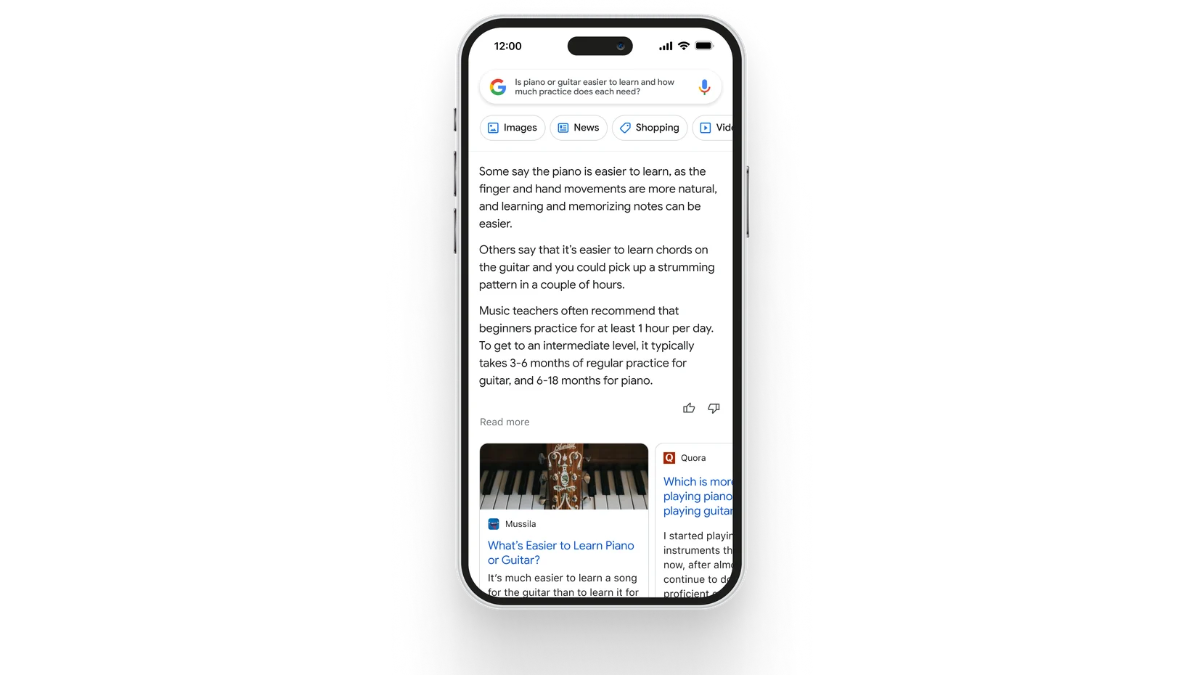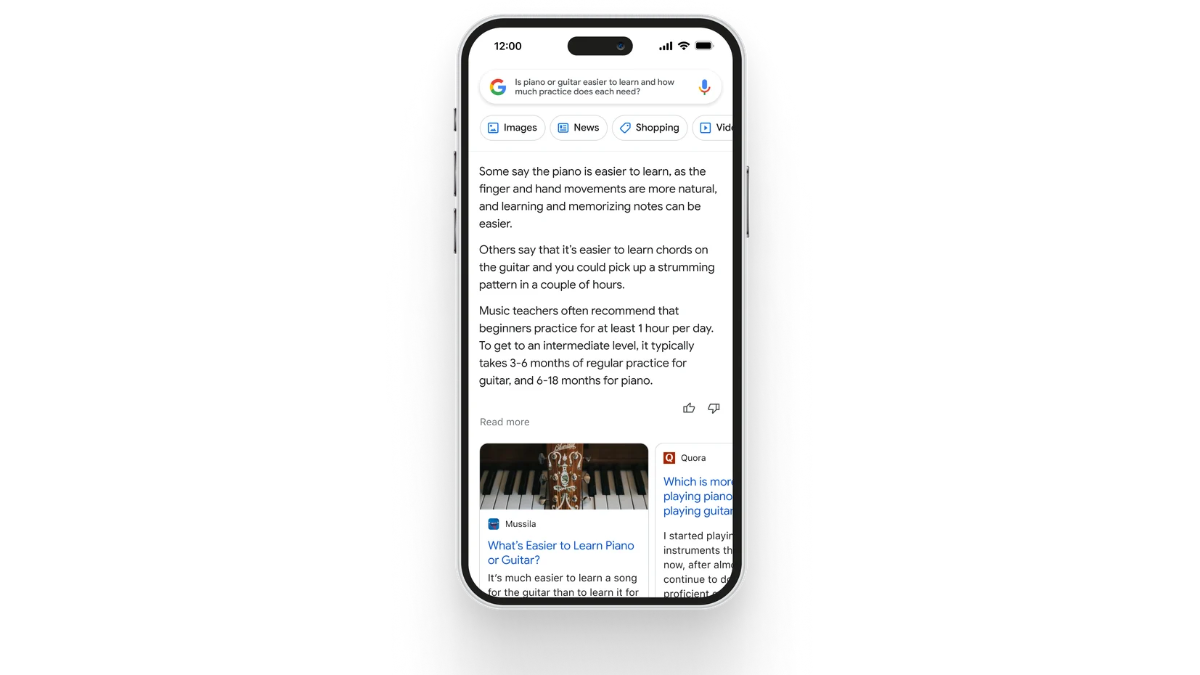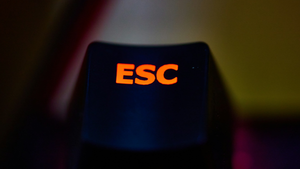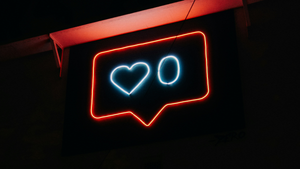
At the end of December, the New York Times reported that Google leadership had declared a “code red” after seeing how quickly OpenAI’s ChatGPT dominated the conversation about AI — and surely because one of its biggest rivals, Microsoft, had gone all-in on OpenAI and its various products. That may make it seem like Google is a laggard in the AI race, but the truth is it’s a major competitor that has been making huge investments in the area for years. OpenAI’s decision to “move fast and break things” is great for its ambitions.
If Google had been the first to launch a product like ChatGPT, it would’ve faced a lot more scrutiny because of its dominant market position and ongoing antitrust investigations. But having OpenAI rip off the band-aid allows it to say it’s just responding to competitive pressure, not irresponsibly leading the charge regardless of the consequences. Yesterday Google announced its ChatGPT rival Bard is starting to filter out, with the goal of implementing more advanced AI features into Search in the near future.
Rather than disrupting its business model, Bard and other AI project will allow Google to double down on moves it’s already been making for years that are premised on getting users to spend more time on its platform (and looking at its ads) instead of quickly moving on to third-party websites. Rather than just scraping web content and presenting parts of it with attribution, Bard will be able to abstract the information users are looking for, further serving Google’s goals.
Bringing the Web to Google
Google has been working for years to bring more of the web onto its platform, to reduce the need for users to move beyond its results. Searching for something on Google in early 2023 doesn’t just yield a plain list of websites with some text ads off to the side like in the old days.
If you search for an actor, you’ll see a box with a bunch of information about them and many of the movies they’ve been in. If you look up a flight, you’ll see prices from different airlines. If you just ask a question, you’ll be presented with a snippet from a website Google’s algorithms deem to be credible — with mixed results for accuracy. Sometimes you might click through to read more, but in many cases you’ll likely be pleased with the short answer and move on with your day, never having visited the website where the answer came from.
The company’s efforts to move more of this information off of other websites and onto its search engine has been making web publishers angry for years, but the reality is that because of Google’s power, they’ve had little recourse against the search monopolist. One win in this area was the European Union’s $2.7 billion fine over Google’s Shopping product, which directed users to its product comparison product while demoting rival services in its search results. But this is happening on a much wider scale, and is clearly something Google has seen as an important evolution as it seeks to maintain the dominance of its Search product.
Bard will allow Google to take this to another level.
Seeing Through the AI hype
For the past few months, we’ve been in the center of a hype storm with the media going into overdrive to distort our understanding of what ChatGPT and these large language models are actually doing. Journalists have used the tool to write the opening of their stories to pull “gotcha” moments on readers, gotten distracted from the real concerns it presents for education, and published misleading headlines about it passing law and medical exams, just to provide a few examples.
The reality is that these tools do not “think” or “learn” as we understand it. They’re not children slowly building up their knowledge of the world around them like any other human; they’re computers that depend on massive data centers to scrape almost unimaginable quantities of data then put that information back to together in a way that their creators hope will be comprehensible to us. Decades ago, AI researcher and critic Joseph Weizenbaum argued these tools need to fool us into overestimating their abilities, but they also rely on us to want to be fooled. They need us to want to believe in the fantasy — and when it comes to tech, companies have succeeded in ensuring we usually are.
But the truth is these AI tools are not the great thinking or image-making machines that have been presented to us. OpenAI has relied on a team of poorly paid Kenyan workers to ensure ChatGPT is spitting out less toxic drivel than it otherwise would by making them look at some of the worst things on the web — the effect on their mental health be damned — to ensure it doesn’t pop up in ChatGPT’s results. But beyond that we’ve seen that CNET has been using AI to churn out articles full of mistakes and plagiarism, while image-generation AIs have been slapping together images that rip off real artists and even emulate messy Getty Images watermarks.
How Bard Benefits Google
Chatbots like ChatGPT and Bard are not taking in our queries, “thinking” about a proper answer, and writing it up for us. They’re simply putting together responses based on all the data they’ve ingested and hoping that because they’ve stored so much, they’ll get close to the target. Unsurprisingly, a lot of the concern over these tools has centered on them disseminating harmful falsehoods and conspiracy theories because they can’t actually tell whether something is true or not.
These are legitimate fears, and unlike ChatGPT which has some loose guardrails, including not being able to use data from the past year, Alphabet CEO Sundar Pichai’s blog post about Bard suggests it might not face similar constraints. In the same way that Google’s featured snippets would regularly suggest false information when they were launched, it’s possible Bard might do something similar — and that will be treated as one of the costs of innovation. But there’s another piece of Google’s desire to add chatbot features to Search that isn’t getting the same consideration.
In his post, Pichai also says,
One of the most exciting opportunities is how AI can deepen our understanding of information and turn it into useful knowledge more efficiently. […] AI can be helpful in these moments, synthesizing insights for questions where there’s no one right answer. Soon, you’ll see AI-powered features in Search that distill complex information and multiple perspectives into easy-to-digest formats, so you can quickly understand the big picture and learn more from the web.
In short, Google will scrape information from the web, then use the AI functionality to mash it up to present its own answer to the question, instead of showing a selection from a specific webpage. It’s not coming up with the information on its own; it’s taking it from somewhere else, but presenting it as its own insight.
The screenshot in Google’s announcement shows a question inputed by the user and a three-paragraph, AI-generated response with no direct attribution, then some related links below for more information. But in the same way the featured snippets made it less necessary to click through to another website, an even more detailed response generated by an AI trained on websites that contain the actual knowledge makes it even less likely the users will go beyond Google.
Once again, the monopolist is only increasing its advantage and ripping off other people’s work in the process, without direct attribution, let alone compensation.
AI Will Reinforce Tech’s Power
Since the explosion of ChatGPT and image AIs like Stable Diffusion, some people have been pushing an ahistorical narrative that these tools will be democratizing and great for “creatives.” It’s the same promise that’s made over and over again, even as tech tools continually increase corporate power and leave the rest of us worse off. These AI tools are no different.
Even if ChatGPT takes Google down from its pedestal or manages to chip away at its dominance in search — something I’m not convinced will happen — who’s going to benefit? It’s not the public; it’s other tech giants like Microsoft, which will show off its Bing with ChatGPT today, or at best a company like OpenAI that got its initial funding from people like Elon Musk and Peter Thiel and will be incentivized to become a monopolist in its own right while cementing its advantage in the space.
The sooner we take off our rose-colored glasses and see through the hype, the better equipped we’ll be to push back against the drawbacks that will be unleashed by the “move fast and break things” embrace of AI by dominant tech companies. Their executives have a long history of making big promises only to saddle us with dreadful consequences while they reap the gains of the havoc they’ve unleashed. Why should we believe this time will be any different?





Member discussion